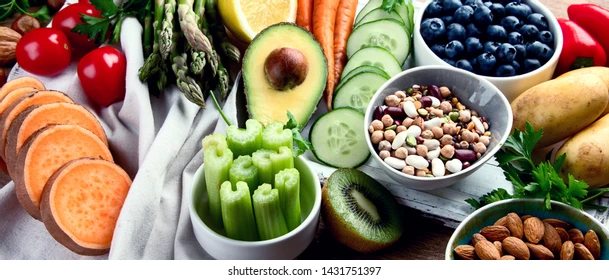Understanding Alkaline Nutrition
To make it clear what an alkaline diet stands for, it is high time to take closer look at the principles of pH and why this approach has ever been considered helpful.
Alkaline nutrition, or more precisely the alkaline diet: this diet is based on the concept that there are certain foods that when ingested into the body, they cause an alkaline content to be produced. In simpler terms, it aims at favoring foods that help the body maintain a pH over neutral. The pH scale ranges from 0 to 14 and is therefore considered neutral at 7. In contrast, the alkaline effect occurs in food that will promote a pH that is slightly above neutral.
Do Read:
Mackerel’s Nutritional Power: Benefits & Processing Guide
How Alkaline Nutrition Affects Your Health
Health Benefits of Alkaline Diet
Healthy Bones
Another idea is the advantage of being on an alkaline diet with good bone health, which is likely due to the many mineral containing foods, products with calcium and magnesium that may help make your bones stronger and lower your chances of developing a condition like osteoporosis.
Higher Energy Levels
An alkaline diet is a lot more about adding more energy, in a number of ways. It encourages nutrient-rich whole foods: fruits, vegetables, and nuts. These all supply important vitamins and minerals, to hold manner power all day.
Possible Negative Aspects and Misconceptions
Although an alkaline diet has advantages, not everything is utterly true and harmless; there are also falsehoods and dangers. For example, diet alters the pH of urine but does not necessarily have an effect on the pH of the blood. As the body retains its pH well, hence you can see that the effects of diet on blood acidity are not limitless. Lastly, alkaline food eating does not constitute a panacea but part of a holistic life.
Foods in an Alkaline Diet
The mainstay of alkaline nutrition is the right choice of food. Below is a look at foods that support an alkaline impact in the body and those to limit for better results.
Alkaline Foods to Include

Fruits and Vegetables
High-impact edible substances forming the basis of an alkaline diet are fruits and vegetables. There are even better choices of green like spinach, kale, and Swiss chard, apart from vegetables like broccoli, cucumber, zucchini. Fruits such as lemons, though they seem acidic in taste, have an alkalizing effect, avocados, and berries all boost an alkaline diet.
Nuts and Seeds
Almonds, chia seeds, and flaxseeds contain healthy fats along with a good dose of protein and cause an alkaline effect. So adding any of these foods in your meals or snacks can be one easy way to increase nutrition without tipping the scale too far and making you too alkaline.
Foods to Limit or Avoid
Processed Foods
Processed food, where fast food, potato chips, and packaged snacks fall, is not only almost impossible to avoid but are also characteristically acidic. Many of these foods contain preservatives and the like to preserve them – in effect, upsetting your pH balance and having a very general impact on your well-being.
Acidic Drinks
Coffee, alcohol, and soft drinks are acidic. Limit your intake of these drinks and opt for herbal teas and plenty of water to keep your pH balanced.
Simple Rules to Begin Alkaline Diet
Want to start alkaline dieting? Here are some simple tips that will make it easier and even more fun.
Easy Ways to Balance Your Diet
You begin with bumping up the fruits and veggies at your meals. Take a serving of greens to lunch, snack on fruits such as apples and berries, and add a serving of vegetables on the side with dinner. Emphasis on whole, plant-based food sources tends to balance your diet more alkaline by default.
Practical Daily Habits for Alkaline Eating
Second tip is drinking a lot of water throughout the day, which is probably one of the easiest ways to support an alkaline environment inside your body. Finally, slowly cut down on acidic foods rather than quitting them all at once. This makes for an easier transition to a new diet and keeps you motivated.


